Non-Stop Elections!
Adelina Marini, July 26, 2013
The issue should there be early elections or not as well as when is gaining speed, which is a symptom that we are still not aware of some of the basic elements of democracy. In a well established democracy where the mafia is not a leading political factor, bribed media do not write society's agenda and the buying of votes is not an established practise as well as the buying of protesters or the participation of over a million "dead souls" in elections, the arguments about whether we should hold immediately snap elections or not would have had a different value. I guess it is safe to suggest that if we had such a democracy, we would have hardly lived up to a situation when a government that has not completed even a month, not to mention the first 100 days, in power is asked to resign.
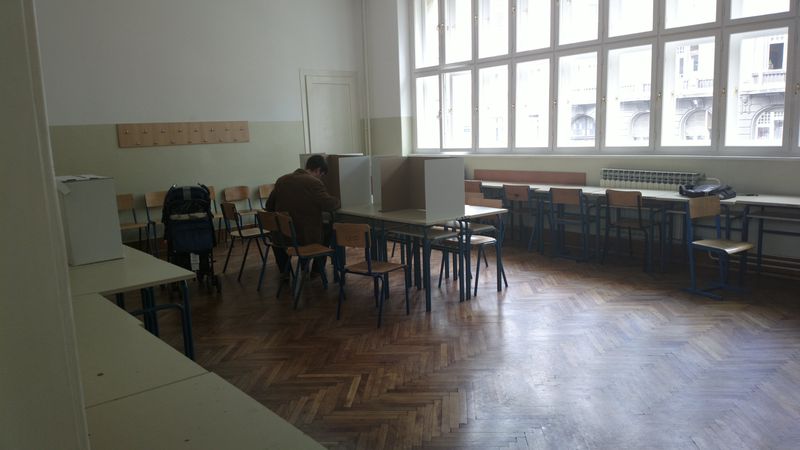
In Bulgaria, however, it is different and that is so because a genuine democracy is still far away. And it is that far away because when we got our liberty from totalitarianism we were not quite sure what democracy meant and that is why we accepted that it only meant to go to elections and have more than one party to vote for. And the leaders of the transition, wolfs in sheep's clothing, for too long and with all possible means were successful in confirming the view that, yes, this is what democracy is all about. That is why, they are so passionate in telling us that we were supposed to be careful whom we voted for on May 12 and not complain if we had not voted at all.
We are also told that holding elections is expensive, that we have to leave the government to work at least one hundred days, that there are many important things they need to do and that if these things are not done Bulgaria will lose a lot. Bulgaria has already lost much. More than we can even imagine being accustomed to living with less. If we look at where are now many of our cell mates from the Soviet block, we will see how much we have lost while exercising "election democracy". In this sense, it is worth asking ourselves whether several tens of millions for new elections is more expensive than a billion badly motivated new debt? Are several tens of millions for new elections more expensive than having on top of the most important security agency in the country - DANS (State Agency for National Security) - a man with unclean past and unclean interests? Are too many the millions for voting when the government is spending who-knows-how-much to wiretap everything that moves in the country? Is it more expensive to vote than having an incompetent government to negotiate the money Bulgaria will be allocated to in the next financial period of the EU?
Isn't it cheaper to vote more often than being governed by governments for whom the fight against corruption and organised crime is not a priority? Governments in which the minister of justice states that reforms depend on magistrates not on her? And to appoint on key positions in the country people connected with the organised crime from the darkest period of our latest history isn't that more expensive than going out to vote again? Aren't too expensive the latest amendments to the law on financing of political parties? Or the too big budget of the Ministry of the Interior which feeds the administration, but leaves as under financed and poorly equipped the policemen and women, while in the same time small crimes are growing, not to mention the organised crime? Isn't it more expensive to have over a billion euros from the EU funds frozen due to abuse than holding new elections?
One of the few open to dialogue representative of the ruling coalition - Ivailo Kalfin, former foreign minister and now a member of the European Parliament - organised the other day a Q&A session on Facebook. I took advantage of the opportunity to ask him why does he believe that having five governments a year, as is his thesis expressed [in Bulgarian] in his MEP blog, is more harmful than having an oligarchic government that had lost the confidence of 60% of the Bulgarians, according to the freshest opinion poll. He answered this:
"You asked me why I believed that immediate elections are irrelevant. I presented my arguments. If the parliament was immediately dismissed, given the current budgetary parameters, the government will be forced to cease all spending some time in late autumn. When there are five governments, no one takes responsibility about what is going on in the country. Of course, this is to the advantage of groups interested in this. The negotiations on the partnership agreement cannot end before mid-spring next year. These are facts, not excuses for a month more. You are right that there must be political responsibilities for the mistakes made. I am convinced that there is no way to avoid it. Of course, if the situation would allow several more months coordinated work of the political parties and institutions, the elections could be earlier, but we have to be aware of the consequences and accept them".
It is true that the frequent change of governments creates uncertainty. A very good example for this is Italy, which before the Berlusconi era had almost no government to complete its term since World War Two. For decades, Italy has had a huge public debt which the country managed to control before globalisation and integration in the EU, but now it is a lot of trouble for the country. But there is no clear evidence that huge debt is the result of frequent elections. Rather it could be assumed that it is the result of decades of poor governance and neglect of the global economic, political and social trends. It is not hard to suggest why those trends were not seen - because now, for the second time in its post-war history, Italy has a prime minister who is younger than 70 years. Much younger actually. A prime minister who if not in the future, at least he does not live in the past. In Bulgaria, there are young premiers, but their mentality is heavily damaged in the obscure times of totalitarianism. They are also a product of the past and have a complete lack of a vision about the future.
Italy is a very good example for another reason as well - it is the country that has suffered for centuries from the tumour of organised crime that threatens not only Italy, as it became clear from the Europol report, presented on July 10 before the temporary committee on organised crime, corruption and money laundering of the European Parliament.
We have to be clearly aware what poses bigger threat in the longer term - will it be the instability caused by frequent elections or the governance of undoubtedly harmful for the society, economy and democracy political forces? I am convinced that instability is preferable because I consider it temporary. We are told that the next elections will bring back the same guys. It is possible, but why are they so worried then to appear before their voters again? But given these more than 40-day-long protests, during which the ruling parties revealed their true faces, I deeply doubt that the situation will be the same. But even if it were, we will vote again and again, and again, until the environment is cleared from the same constantly repeating themselves and imitating democracy arrogant people.
How will this happen? Easy. These people took advantage of the disgust of citizens that has led to a constantly declining voting activity that reached its sanitary minimum of a little over 50% on the last elections in May. The big number of people who did not vote opened a great possibility to buy votes, to manipulate elections and to even forge results. These people touched even one of the most sacred things of democracy - the right of gathering (protest) - by harnessing their machine and financial resources to infiltrate paid demonstrators, they even turned their media clappers in pure propagandists and public criers and debauched literally every fundamental of democracy.
But their resources are limited. They are in a hurry now to vote the revision fo the budget that envisages a poorly defended borrowing of 1 billion. They will probably succeed. But if we have elections in every several months, complete uncertainty how much time will they be in power, this would lead to depletion of their financial resources and society will be growing stronger by the day. The independent observations of elections are getting more and more and are better organised. The new technologies allow for direct observation in real time of everything that happens somewhere. Although we are not constantly in the headlines of the world and regional media, they already know what is going on in Bulgaria and when elections are taking place, they will follow them closely, especially in the EU when next year there will be European elections and the European political parties will be very sensitive with whom they will have to stand side by side and smiling to advertise the European values, solidarity and unity. On other words, these dictatorial dinosaurs will not withstand for too long the pressure of citizens for change.
Yes, we might not be able to write the most brilliant plan for absorption of EU funds in the next 7 years, but we will have rescued an awful lot of money of the European (that includes Bulgarian) taxpayers from being stolen. Yes, we might not have more tens of new kilometres of motorways and renovated roads, but we will build the foundation in the coming decades allowing us to have not tens but hundreds of kilometres of new motorways, built with quality because we will have established transparent and relentless mechanisms for control of every cent of public money.
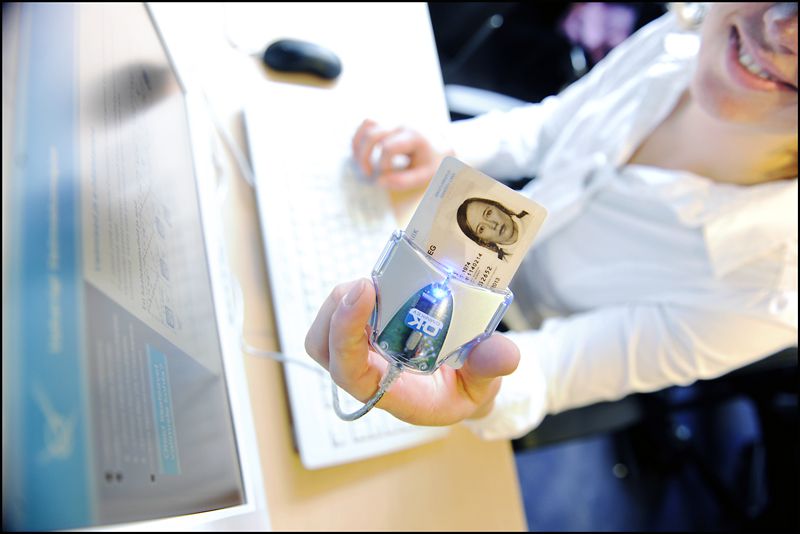
Yes, we might have problems with some basic state functions, but this will be temporary. We have lived through a lot worse - several defaults, a lot of robberies, bad governance. We should not be whimsical that we will finally go through the building of a true state with genuine society that controls and does not tolerate abuses with the public goods it creates. Every new election will lead to a constant perfection of the electoral legislation or even of the penal legislation, if you like. This will lead to further exposition of more practises that have to be rooted out once and for all. This will be our true catharsis, not the one we are offered by completely discredited politicians. From now on, more than ever, media, civil organisations, ordinary citizens will be on the alert what legislation is being passed. More and more they will want to take part in its writing. More and more they will want discussions, debates, openness, transparency. They will want more and more e-government.
We should not be afraid of new elections nor of frequent elections. We should not consider the elections as the end of the road and that we have to elect the best government once and for all. May be there will be a time when a government could stay not only a full term, but even two or three as in Luxembourg and is probably forthcoming in Germany this autumn. But this will have become possible thanks to our efforts to clean out political system from parasites who may be speaking nicely and even in correct Bulgarian, but think badly and act incorrectly. No one ever said democracy is cheap. Liberty costs dearly. Freedom, Sancho, is on the point of the pike.
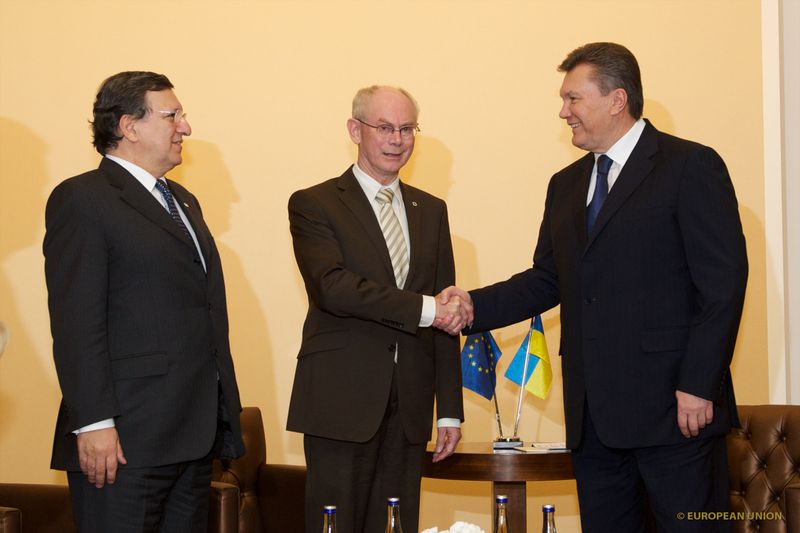 Jose Manuel Barroso, Herman Van Rompuy, Viktor Yanukovych | © Council of the EU
Jose Manuel Barroso, Herman Van Rompuy, Viktor Yanukovych | © Council of the EU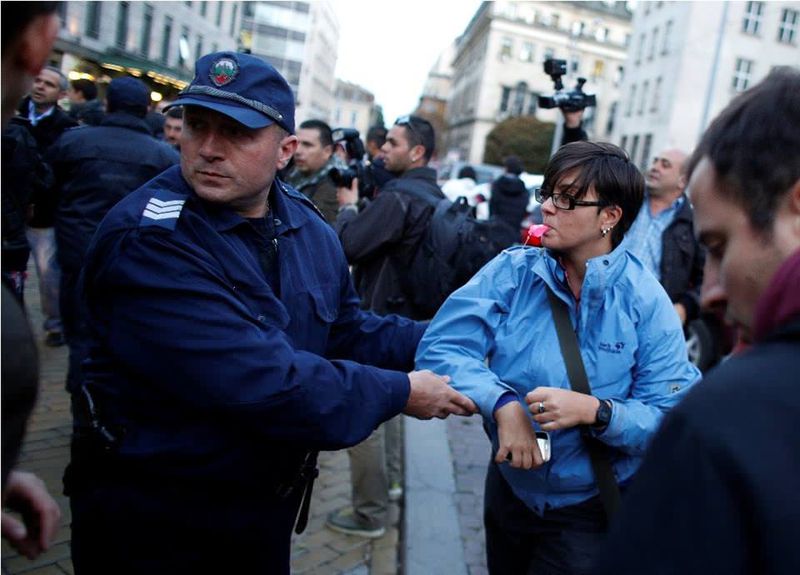 Magdalina Guenova | © Magdalina Guenova
Magdalina Guenova | © Magdalina Guenova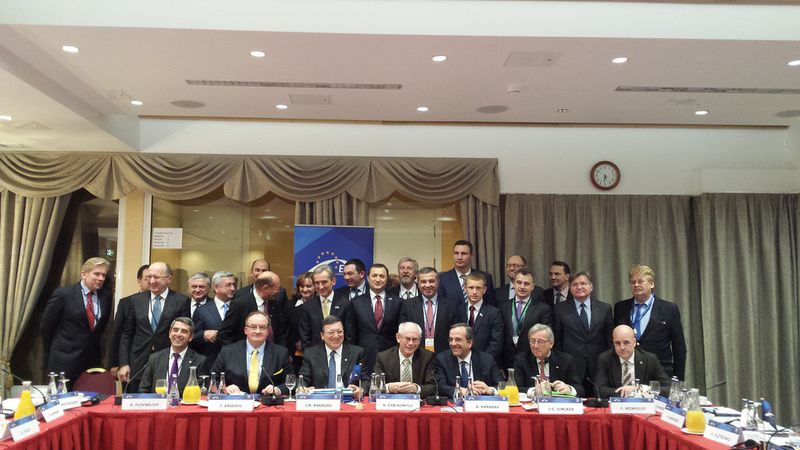 | © EPP
| © EPP